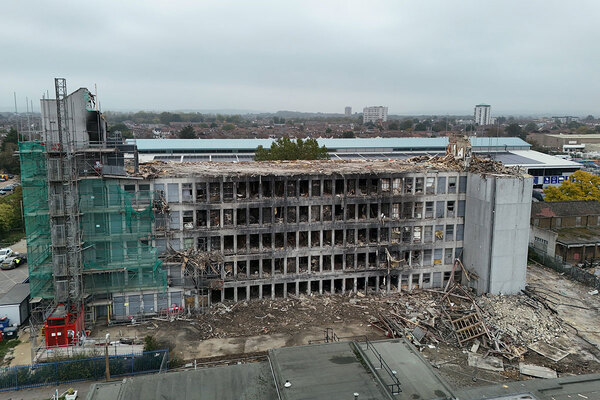You are viewing 1 of your 1 free articles

Preventing ex-service personnel from becoming homeless
Charity Stoll and housing association Riverside are calling for steps to ensure veterans receive enough help into housing after returning to civilian life. Ed Tytherleigh explains more
Every year there are more than a thousand ex-service personnel who become homeless or who face the risk of homelessness and require urgent support to find accommodation.
Too many men and women who have served their country are facing unnecessary homelessness.
Health and social issues are just some of the reasons why former members of the armed forces end up being homeless.
People who are already in vulnerable situations can find these issues exacerbated if they do not have a place to call home.
“If we are to reduce homelessness among veterans we need a significant shift in approach.”
We need to do what we can to stamp out homelessness among veterans. It is critical that those veterans facing homelessness – or those supporting them – know where to turn to at the right time.
If we are to reduce homelessness among veterans, we need a significant shift in approach to the issue of housing ex-service personnel.
Doubling housing provision
There is a housing crisis in the UK with increased levels of homelessness and simply not enough houses to go round.
Veterans experience this in the same way any other group does and we need to build more houses for veterans, too.
Recent research from the Directory of Social Change has identified just over 4,500 units of accommodation nationwide that are ring-fenced specifically for veterans.
The same research highlighted that there were just 276 floating support places for veterans nationwide.
Despite the allocation of some good accommodation and supported housing, it is still insufficient to provide a home to the number of homeless veterans that services such as ours see every year.
We will probably need to double the provision to meet the needs of this community.
Addressing the shortage of Veteran specific housing
Being able to access appropriate housing for veterans and their families is a basic right. This is why we also have the get the systems right.
Identifying those people who may struggle and making sure they are given bespoke and well-informed advice is critical.
Stoll and Riverside, in collaboration with the Cobseo Housing Cluster, are urging the government, local authorities and other agencies to adopt a series of recommendations to help reduce veterans’ homelessness to as close to zero as possible.
The transition to civilian life
We recognise that the majority of service personnel will undergo a successful transition to civilian life.
However, we want to ensure that every single service leaver, whatever their circumstances, is asked about their housing options after service, as part of the transition process.
We see this as a similar system to the existing Career Transition Partnership, but focusing on getting a place to call home alongside employment.
Identifying veterans and providing a clear housing pathway
Local authorities have an instrumental role in ensuring that veterans do not slip through the net and end up homeless.
That is why we would like to ensure that veterans are featured within housing and homelessness strategies.
This means not only recording whether someone applying for housing advice is a veteran, but also being able to give the appropriate advice so they have a clear housing pathway.
The support of the Ministry of Defence, the Ministry of Housing, Communities and Local Government and umbrella bodies within the veterans, housing and homelessness spheres is also key to ensure that every service that interacts with a homeless veteran can ensure they obtain bespoke and well-informed advice through one phone call, for example to the Veterans Housing Advice service.
The initial signs are positive and we remain confident that, with the right support, we can reduce the incidence of homelessness among veterans as close to zero.
Ed Tytherleigh, chief executive, Stoll and co-chair, Cobseo Housing Cluster










